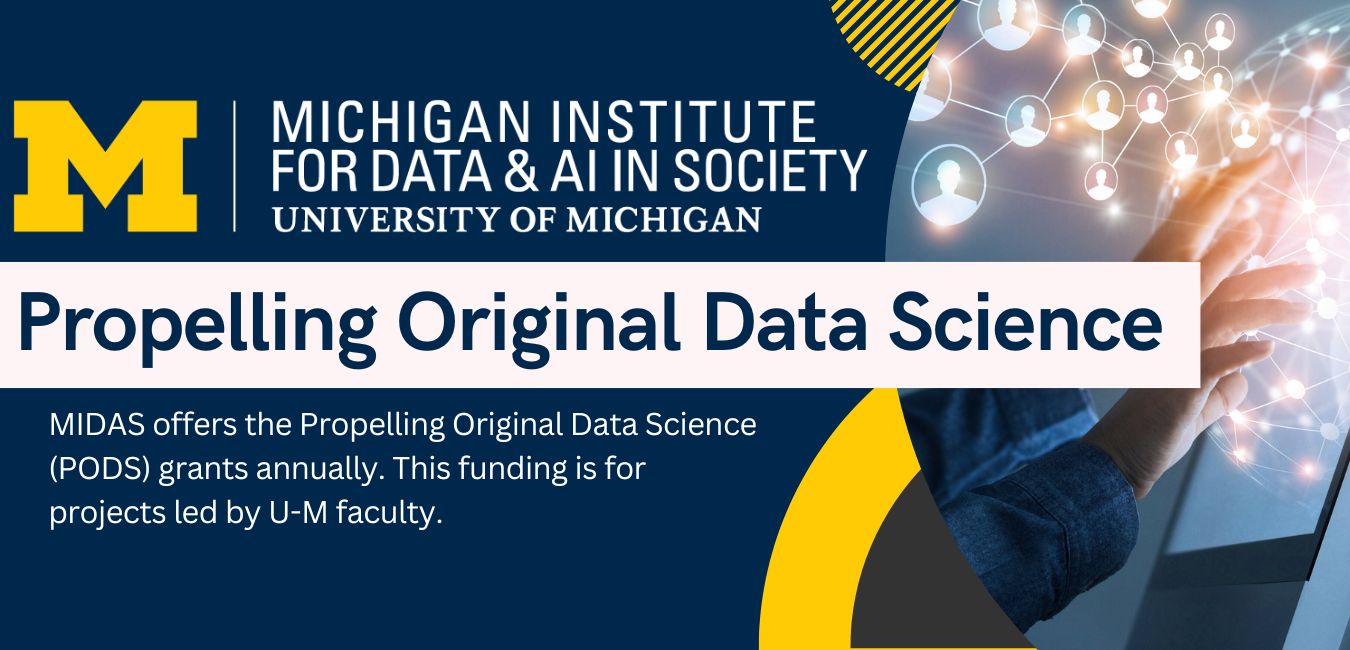The 2023 awardees are:
- From ground to air, and the traveler experiences in-between: Human-centered data-driven performance measures for multimodal transportation systems
Atiyya Shaw (Civil and Environmental Engineering) and Max Li (Aerospace Engineering and Industrial and Operations Engineering - A Data Science Toolkit for Examining Local Governance
Justine Zhang (School of Information) and Yanna Krupnikov (Communications & Media) - Bayesian modeling of multi-source phenology to forecast airborne allergen concentration
Kai Zhu (School for Environment and Sustainability) and Kerby Shedden (Statistics) - Interpretable machine learning to identify tumor spatial features from longitudinal multi-modality images for personalized progression risk prediction of poor prognosis head and neck cancer
Lise Wei (Radiation Oncology) and Liyue Shen (Computer Science and Engineering) - MI-SPACE: Multiplex Imaging based Spatial Analysis for Discovery of Cellular Interactions in the Tumor Microenvironment
Maria Masotti (Biostatistics) - Detecting and Countering Untrustworthy Artificial Intelligence (AI) through AI Literacy
Nikola Banovic (Computer Science and Engineering) - Foundations of Sequence Models for Learning, Estimation, and Control of Dynamical Systems
Samet Oymak (Electrical and Computer Engineering) and Necmiye Ozay (Electrical Engineering and Computer Science & Robotics) - Neural Quantum States at Scale: Applications in Sciences and Engineering
Shravan Veerapaneni and James Stokes (Mathematics) - Machine-Processing of Graduate Student Applications for Diversity, Equity, and Inclusion
Wenhao Sun (Materials Science and Engineering) and Dallas Card (School of Information)

Since 2016, MIDAS has been offering funding to U-M faculty to enable groundbreaking disciplinary and interdisciplinary research through data science and AI, making it possible for research teams to form many new collaborations, formulate groundbreaking ideas, and secure external funding to expand their work.
As of 2022, a total of $12M MIDAS funding has jump-started 63 research projects, which expanded into 112 follow-on projects with $114M of external funding. In addition, “year after year, the applicants propose to employ increasingly more sophisticated data science and AI methods to address increasingly more profound research questions,” says Dr. H. V. Jagadish, Director of MIDAS. “This reflects the rapid advancement of data science and AI and their transformation of science and society, and U-M researchers are at the forefront of it.”
The 2023 PODS teams presented their projects at the U-M Annual Data Science and AI Summit, held on November 13–14, 2023.
Watch the Presentation